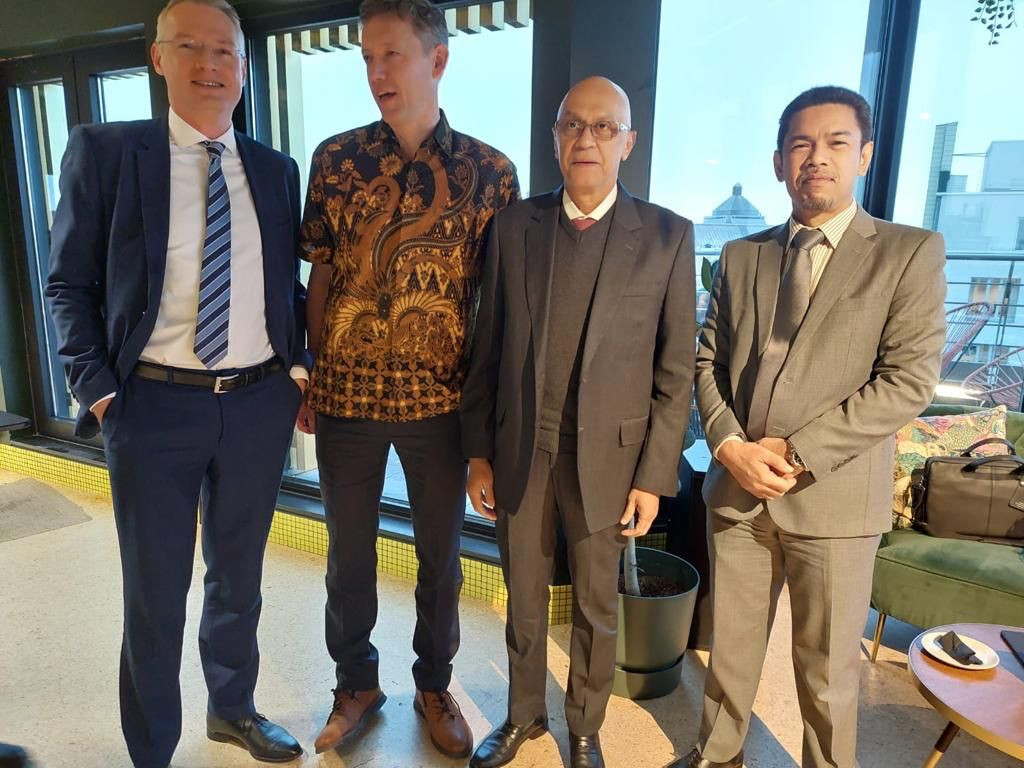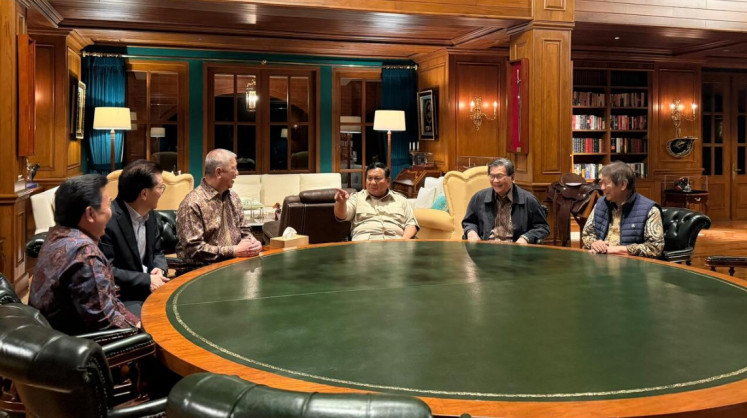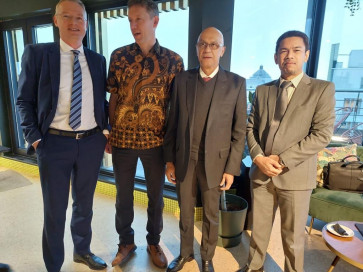Popular Reads
Top Results
Can't find what you're looking for?
View all search resultsPopular Reads
Top Results
Can't find what you're looking for?
View all search resultsNavigating challenges of Indonesia-EU economic partnership
Indonesia should take note of Vietnam's success in boosting trade by 76 percent and gaining a 71 percent increase in EU investment after completing an agreement with the European Union.
Change text size
Gift Premium Articles
to Anyone
I
ndonesia and the European Union last week completed the 16th round of negotiations for their Comprehensive Economic Partnership Agreement (IEU CEPA). But despite the importance of the agreement, substantive progress remained elusive. Leaders from both economies have set ambitious targets for a swift resolution, yet challenges persist.
This agreement holds immense significance due to the substantial economic interdependence between the two economies. The value of the two-way trade between Indonesia and the EU last year totaled US$33.2 billion, of which $21.5 billion consisted of Indonesian exports, or about 8 percent of its exports worldwide. Foreign direct investment from the EU to Indonesia last year totaled $2.7 billion, positioning the EU as the fifth-largest investor in Indonesia.
However, given Indonesia's status as the largest economy and most populous nation in ASEAN, these trade and investment figures fall short of their potential. As a comparison, Vietnam, which has concluded a trade agreement with the EU, could boost its exports to EU countries to an impressive $60 billion last year, or almost three times as big as exports from Indonesia, the largest economy in ASEAN.
A study conducted by the Centre for Strategic and International Studies (CSIS) in 2021 highlighted the potential of the IEU CEPA to boost Indonesia's annual economic growth by almost 0.2 percent. Additionally, the urgency to conclude the IEU CEPA is exacerbated by the inevitability of Indonesia losing the Generalized System of Preferences (GSP), which currently grants reduced tariffs for 50 percent of the country’s export products to the EU. This facility will be phased out as Indonesia ascends to the status of an upper-middle-income country.
Additionally, the IEU CEPA is also designed to harmonize with EU market standards, encompassing health, environmental, and packaging regulations that have historically posed challenges for Indonesian entrepreneurs. As Indonesia has been increasing its production capacity and strengthening its export competitiveness, it stands to expand its export market beyond the EU countries.
The completion of the IEU CEPA agreement presents a formidable challenge. The issues addressed in these negotiations go beyond conventional trade agreements, introducing new and comprehensive elements such as state-owned enterprises (SOEs), business competition, trade, and sustainable development. These novel issues necessitate significant adjustments in both regulatory frameworks and technical implementations.
Out of the targeted 20 chapters, only about six have been successfully completed as of the 14th round. These completed chapters include crucial subjects like trade remedies, SMEs, and transparency. However, the greater challenge lies in finding common ground amid varying perspectives on national policies, particularly concerning the domestic interests of both parties.



















